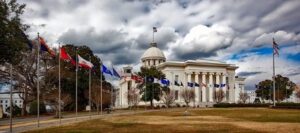Alabama Court Reaffirms Constitutionality of False Claims Act

The False Claims Act is the government’s primary tool to go after those committing fraud against the government. One of the key features of the statute is the qui tam provisions, which allow private parties (whistleblowers) to bring suit on the government’s behalf and in return, receive a hefty share of any government recovery. The Constitutional muster of this feature has long been settled, with the statute dating back to the Civil War and qui tam provisions more broadly predating this country’s founding and widely employed by the country’s First Congress and beyond.
But there have been legal challenges along the way, the most recent of which was prompted by Justice Clarence Thomas’ dissent earlier this year in United States ex rel. Polansky v. Executive Health Resources, Inc. There, the Supreme Court confirmed (in a 8 to 1 decision) the government’s absolute right to dismiss a qui tam case under the False Claims Act, even when the whistleblower who brought the action objects. It is not an unfettered right. The government still needs to provide a reasonable basis for its decision. The Supreme Court made clear, however, that the government should get its way absent compelling circumstances.
Justice Thomas disagreed, claiming whistleblowers have significantly more authority and autonomy than the majority was willing to read into the statute. So much so he posited that he questioned whether these qui tam actions are even Constitutional under Article II because they allow private individuals to represent the interests of the United States in litigation. In a concurring opinion, Justice Brett Kavanaugh (joined by Justice Amy Coney Barrett) agreed with Justice Thomas that Article II issues are raised by the False Claims Act’s qui tam provisions and that the Court should consider them in an appropriate case down the road.
As so many commentators (including us) predicted, Justice Thomas’ decision provided an open invitation for defendants to add Article II challenges in their efforts to dismiss qui tam cases going forward. With last week’s decision in United States ex rel. Wallace v. Exactech, Inc., at least one court has squarely revoked that invitation, flatly rejecting both of the Article II challenges the defendant made.
The first challenge was under the Appointments Clause, which gives the President the power to appoint senior officials (with Senate approval, and with Congress having the authority to appoint more junior officials). The court readily found that whistleblowers bringing False Claims Act suits are not government officials covered by the Appointments Clause. Their “duties” are temporary and limited to the narrow confines of the False Claims Act case they prosecute. And they wield no governmental power, as the government maintains strict control over the lawsuit, including the ultimate authority to settle or dismiss the action.
The second challenge was under the Take Care Clause, which directs the President to take appropriate measures to ensure the laws are faithfully executed. The court rejected its application for similar reasons, finding that False Claims Act whistleblowers lack any criminal, investigatory, or prosecutorial powers and remain subject to Executive Branch control in how the case is ultimately resolved. The government may intervene and take over the case at any time, with clear authority over its final disposition even if the government does not intervene.
The court also looked to the long history of the False Claims Act to further buttress its reasoning, noting the Supreme Court looked to this same history in finding False Claims Act whistleblowers have Article III standing. Or, as Justice Scalia so definitively put it in the landmark Article III standing decision Vermont Agency of Nat. Res. v. United States ex rel. Stevens, the history of qui tam actions is “well nigh conclusive” to the Article III issue. The Exactech court found this history equally applicable to Article II.
This decision will not be the last word on the Article II question. It is from a district court in Alabama and thus not binding on any courts outside that district or on any circuit level courts. But it is certainly persuasive. And given the strength and simplicity of the court’s reasoning, coupled with the decisions of the Supreme Court and other courts rejecting similar or related Constitutional challenges, it seems likely that other courts will answer this Constitutional question the same way.
And we all will be the better for it. The government has recovered tens of billions of dollars under the False Claims Act over the past few decades alone. The vast majority of these recoveries came from actions initiated by whistleblowers. Any effort to remove or interfere with the ability of whistleblowers to bring these cases would seriously undermine the statute and the government’s ability to detect and prevent fraud. It is a fact Congress has repeatedly acknowledged with its continuous stream of amendments to strengthen the whistleblower provisions of the statute.
So if you have information relating to potential fraud against the government, rest assured the False Claims Act will continue to be a viable vehicle through which you can seek redress. If you would like more information on what it means to be a whistleblower, please contact us for a free and confidential consult with an experienced member of our whistleblower lawyer team.
Read More
Tagged in: Court Decision, FCA Federal, FCA Materiality,